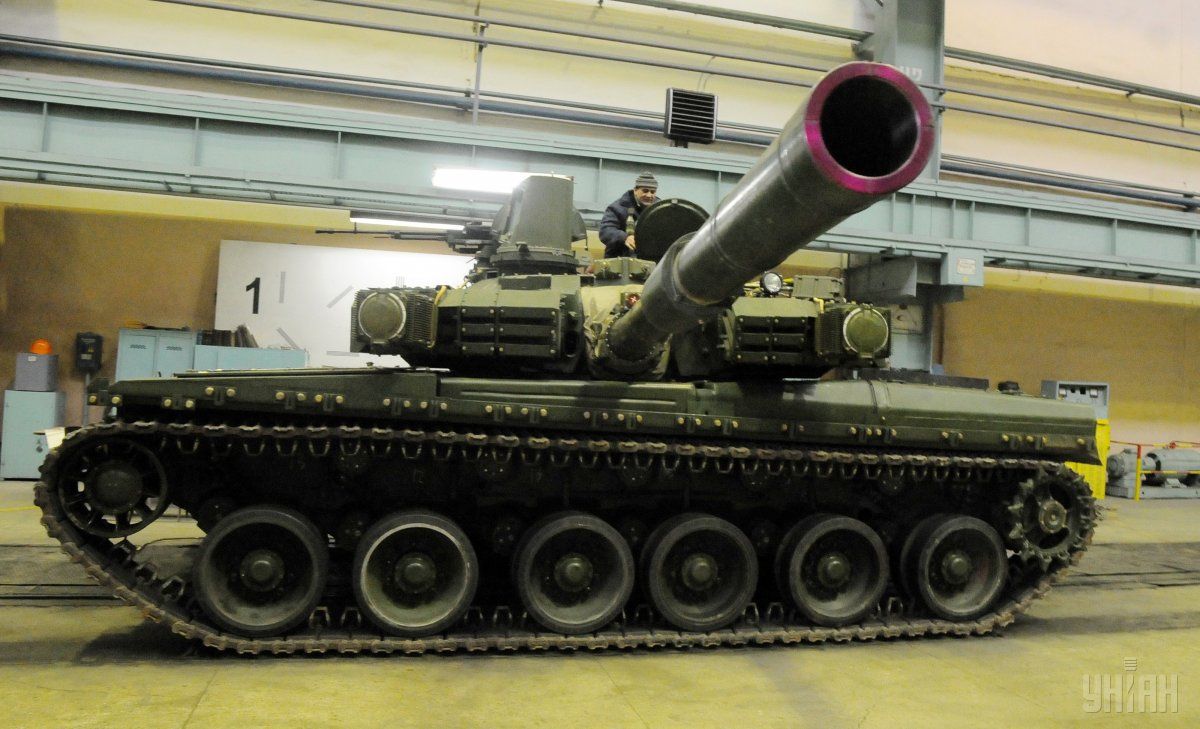
Ukrainian MBTs for Thailand
Arms exports remain an important source of income for the Ukrainian defense sector. One of the major export contracts is this year’s delivery of a final batch of Oplot main battle tanks to Thailand. The deal is worth nearly $250 million.
Ukraine retains its status of one of the world’s TOP 10 arms exporters. According to the State-owned Ukroboronprom Concern, over the past few years, the volume of export contracts has increased significantly. Over the first 9 months of 2016 alone, the amount of the military equipment supplied abroad grew 20%, worth almost $600 million, while the total amount of export contracts signed in 2016 was worth more than $1.5 billion.
After the beginning of hostilities in Donbas, fulfillment of international contracts for the sale of weapons has ceased to become top priority. The main task for the Ukrainian government was to ensure combat capability of the Ukrainian forces countering Russia’s military machine.
However, arms contracts are an important element of the overall income for the national defense industry and the country’s state budget - a portfolio of international deals provides billions of dollars of much-needed forex earnings for the national economy.
One of the most important and widely discussed deals in the package of contracts is the supply of fifty Oplot main battle tanks to the Kingdom of Thailand. For more than six years, Ukraine has been struggling to fulfill its obligations.
Problematic contract
BM Oplot tank is the latest product of the Ukrainian armored industry. The machine is another step in a series of comprehensive modernization of the Soviet-era T-80 tank as well as T-84, developed on its basis.
The tank was approved for the use by the Ukrainian Armed Forces back in 2009, while two years on, in 2011, the contract with the Thai government was signed off. The agreement stipulated the delivery of 49 tanks to the customer before the end of 2014 for a total of about $250 million. However, only five machines were supplied before the deadline set, while further performance of the contract was delayed for several years, with regular breaches of the new deadlines.
After the outbreak of hostilities in the east of Ukraine in 2014, the execution of arms contracts has been suspended, while the terms of their implementation were reviewed. This also regarded the Thai deal. After a lengthy pause, the contract was renewed in the summer of 2015, when the second batch of five Oplots was shipped to Thailand.
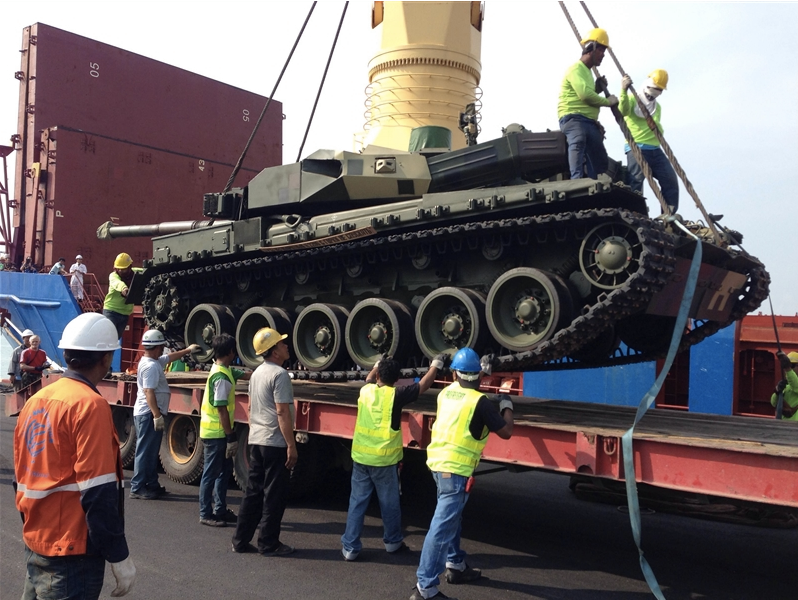
But such a rhythm of Ukraine’s obligation fulfillment could actually put an end to the deal. Ukroboronprom leadership has switched to some more pro-active measures. For the violation of contractual deadlines, CEO of Malyshev Plant, the Oplot producer, was laid off. The state-owned concern has recognized that there are indeed some problems with the tank’s production and even enlisted the assistance of private manufacturers. Meanwhile, these steps also failed to resolve all the problems with supplies.
As of January 2017, Thailand received only 20 tanks out of the expected 49, although this year should see the final implementation of the contract.
Tanks under media attack
Ukroboronprom’s competitors have embraced the opportunity to benefit from the problems with the contract execution. This is how the company officials comment on reports in some Ukrainian and foreign media claiming Thailand was considering to terminate the deal with Ukraine.
The latest report of such kind was published in January this year, just ahead of the delivery of the fifth batch of tanks. Bangkok Post has spread reports about the alleged decision by Thai military leadership for the early termination of Oplot deal due to the fact that at the moment the customer has received only 20 of 49 tanks, while the contract term expires in October 2017. According to the information published, Thailand was willing to replace the Ukrainian Oplots with 28 Chinese VT-4 tanks.
In response to such a message, Ukroboronprom said it was all nothing more but the competitors’ attempt to take a bite of a lucrative contract.
According to Ukrspecexport, Ukraine’s major exporter of all kinds of weapons and military equipment, the Thai delegation from January 16 started the procedure of accepting the next batch of Oplot tanks.
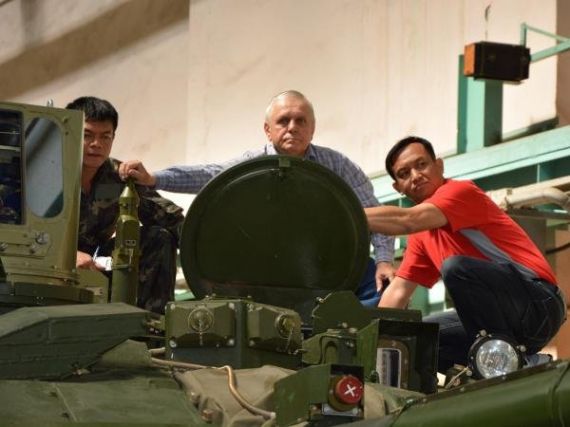
“This is a standard procedure. They check [the tanks] at the plant, then there is bench testing, as well as the tests on a range. Accordingly, when this is all over and when the inspection approves it, the tanks will be delivered to the customer,” the Malyshev Plant officials told UNIAN. “This usually happens within a maximum of two weeks. The delivery of the tanks to the customer will take another few months."
Head if Defense Express information and consulting firm and a military expert Serhiy Zghurets in his comments to UNIAN noted that the Ukrainian tank is rather competitive on the world arms market, but regular violation of contractual terms undermines the credibility of Ukraine as a reliable partner. Oplot MBT is able to compete well with China’s VT-4, especially in terms of engine characteristics. That’s because the Chinese don’t produce engines for their tanks. But anyway, export contracts must be performed in time. Otherwise, Chinese or Russian competitors will start emerging, either in the format of media publications or statements. We need to reliably ensure the execution of contracts. If we ignore such things, we will be losing our positions," said the expert.
Not for internal market
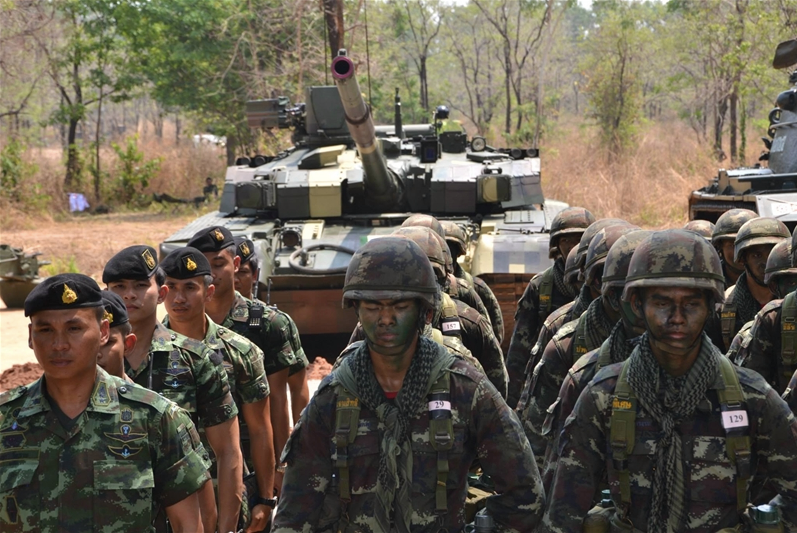
Another issue related to the exports of Oplots is the fact that the Ukrainian authorities regularly choose not to put them in annual defense orders. For someone not familiar with the matter, the situation may look absurd: a country at war is selling out its most modern weaponry, at the same time using outdated armored vehicles in the ATO zone in Donbas.
Most experts agree that the current situation arose from the financial component of the issue. Oplot is now more beneficial to sell than to allocate public funds for its purchase.
"Oplot MBT is needed for exports. A decision should simply be taken that it goes for sale, while with the money we raise we then decide what we should do with our heavy armored vehicles in the future," said Zghurets.
According to him, in the near future Ukraine will use in combat the T-64 tanks after their thorough modernization. By the way, several thousand tanks of this model remain conserved in the warehouses of the Defense Ministry.
Zghurets says that there is a similar situation with the development of the armored industry in Russia. Their latest Armata tank, which is only engaged in a media combat field as a propaganda weapon, will go into a mass production in just ten years.
Armata is an experimental model. They promised that this year a full-scale production will already start. But we don’t see it yet. I am positive that the Armata tank will be brought to mass production in no less than 10 years. And we will be fighting, using modernized T-64 tanks, while they will have T-72’s," said Zghurets.
By the way, in early January, a new tank was patented. The designers named the model T-Rex [or Tirex], saying that the project will become a major competitor of Russia’s Armata.
According to the concept, T-Rex should be resistant to cumulative ammo. By analogy with Armata, it will be equipped with an armored capsule able to fit in three crew members, as well as an “uninhabited” turret.
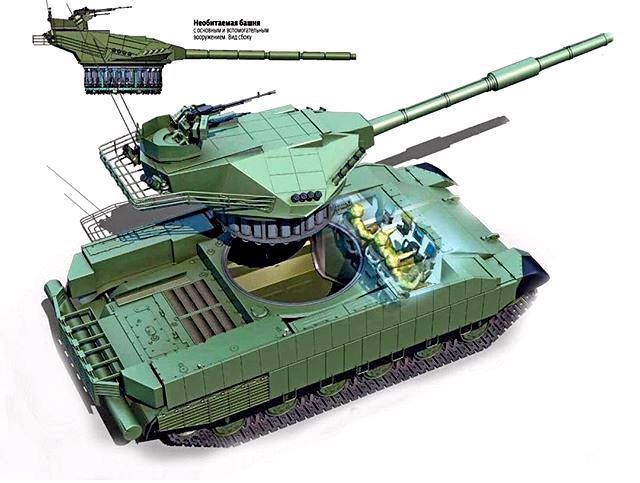
"The ideology, incorporated in a T-Rex tank, is comparable to Armata in performance, only if all the decisions, which are still on paper, are implemented. But this requires state funding," said Zghurets.
Getting this funding given the financing gap can be achieved through the increase of military exports. Money obtained from the sale of tanks and other weaponry can be allocated for the modernization of production capacities and the development of new products. But competing and maintaining Ukraine’s positions in such an important arms market will be impossible without a clear systemic government policy.
Vladyslav Shvets (UNIAN)

